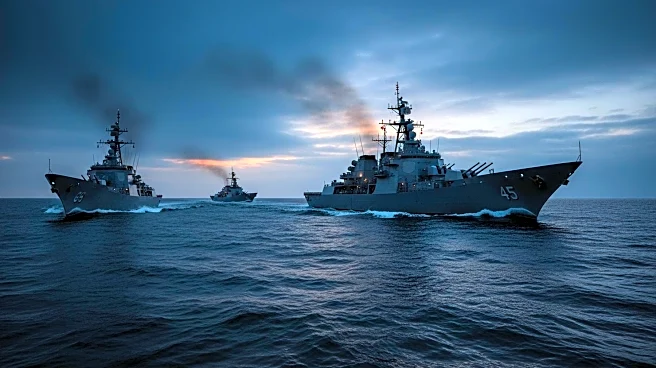What's Happening?
The presence of U.S. warships off the coast of Venezuela has sparked concerns among Venezuelans about potential military actions. The U.S. administration's show of force is perceived by some as a strategic maneuver, while others view it as mere theatrics. This development comes amid ongoing tensions between the two nations, with the U.S. government maintaining a firm stance against the Venezuelan leadership. The situation has led to increased anxiety within Venezuela, as citizens speculate about the implications of the U.S. military presence.
Why It's Important?
The deployment of U.S. warships near Venezuela is significant as it underscores the strained relations between the two countries. This move could impact regional stability and influence international diplomatic efforts. For the U.S., it represents a strategic positioning that may affect its foreign policy in Latin America. Venezuelan citizens and neighboring countries are closely monitoring the situation, as any escalation could lead to broader geopolitical consequences. The U.S. administration's actions may also affect its relations with other global powers that have interests in Venezuela.
What's Next?
The future of U.S.-Venezuela relations remains uncertain, with potential diplomatic or military responses from both sides. The international community may seek to mediate or intervene to prevent further escalation. Political leaders and organizations could call for dialogue to address the underlying issues. The situation may also prompt discussions within the U.S. government regarding its approach to foreign policy in Latin America, potentially leading to shifts in strategy or alliances.
Beyond the Headlines
The presence of U.S. warships near Venezuela raises ethical questions about the use of military power in international relations. It highlights the complexities of sovereignty and intervention, as well as the potential humanitarian impact on Venezuelan citizens. The situation may also influence public opinion in the U.S. regarding its foreign policy decisions, prompting debates about the balance between national security and diplomatic engagement.









